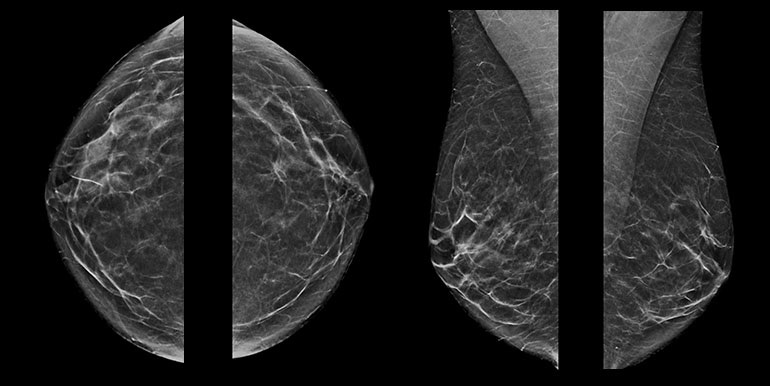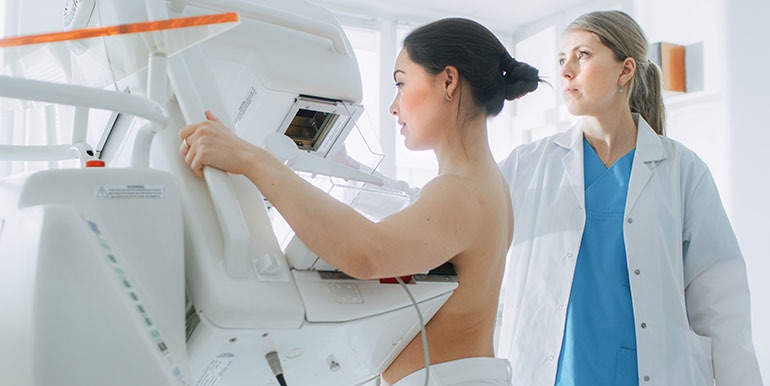Early mammograms in young women at increased breast cancer risk may save lives
17. 06. 2013 | University of Manchester Press ReleaseFindings that have just been published in the journal Familial Cancer [1] show that women under the age of 40 at higher risk of breast cancer who went for mammographic screening had their breast cancer detected at an earlier, more easily treatable stage, potentially improving their chance of survival.
Image credit: Calbert Warner (pexels.com)
Leading breast cancer research charity Breast Cancer Campaign, has funded the first ever study into mammographic screening in women under 40 with an increased risk of breast cancer compared to the general population.
More than 450,000 women in the UK under the age of 40 (around 3%) are classed as being at moderate risk of breast cancer due to a family history and at least half seek help from a health professional because of concerns. Their risk of getting breast cancer is between 17% and 29% compared to the general population’s risk, around 12.5%. A further estimated 1% of women are classed as ‘high risk’, with a risk of 30% or more, including those like Angelina Jolie with BRCA or TP53 gene mutations who can have up to an 85% risk.
Cancer genetics expert Professor Gareth Evans at the University of Manchester carried out the study in 1448 women. He retrospectively analysed mammographic screening information from studies among women aged 35-39 with a 17% (1 in 6) or more lifetime risk of breast cancer, to find out whether surveillance with mammography showed any benefits.
Across five centres, 47 cases of breast cancer were detected in women who had been screened and these were then compared with women of similar ages with breast cancer who had not been screened, including a subgroup of 293 women with similar family histories from a previous study. The cancers detected in screened women were significantly smaller than the 1401 detected by symptoms and no screening. Of the 293 cancers detected in the other study, more cases had spread to the lymph nodes.
The next phase of this project is a clinical trial involving 2,800 women from over 30 locations across the UK to confirm and expand on the results of this analysis before a change to national and international clinical guidance can be considered. Women in the trial aged 35-39 and with a 17% or higher lifetime risk of developing breast cancer will be screened annually for five years to determine the benefits of this approach. This will allow the researchers to assess cost effectiveness for the NHS to provide annual mammography for these women.
For women with a moderate risk level preventative surgery is not an option, nor are they guaranteed access to breast surveillance. Current guidelines from the National Institute for Health and Care Excellence (NICE) indicate women with moderate risk under the age of 40 can only be screened with mammography as part of a research study, but if confirmed in a further trial this new evidence could change that.
Professor Evans commented on the study, “These results are an exciting first step into stratifying screening to a more targeted group of women at increased risk of breast cancer and show definite benefit, by finding cancers at an early stage where treatment can have most impact. Mammography has been proven to save lives of women eligible for screening as part of the NHS Breast Screening Programme and is readily available on the NHS making it a realistic option for use in younger women at higher risk. Findings need to be confirmed in phase two of this study but we're hoping they expand on our initial findings to provide women at higher risk of breast cancer with a quicker diagnosis option."
Baroness Delyth Morgan, Chief Executive of Breast Cancer Campaign said, “This study shines a welcome spotlight on the needs of women who are at an increased risk of breast cancer and living with the uncertainty of their risk but currently without any extra surveillance support.
“Professor Evans' findings are extremely timely in indicating just how vital breast cancer screening is and how it can be used in a more targeted manner for a large group of women with who have limited options at their disposal to help prevent and detect the disease. We need every tool we can get to fight this disease and surveillance and treatment options tailored to individual genetic make-up and risk are a key means to detect and treat women as early and effectively as possible. Following confirmation of these findings from an on-going clinical trial, a change to clinical guidance would be a practical use of the existing mammography system.”
This project was partly funded through Breast Cancer Campaign’s partnership with Asda and its Tickled Pink campaign.
Reference
- Evans, D. G., Thomas, S., et al. (2013). Mammographic surveillance in women aged 35-39 at enhanced familial risk of breast cancer (FH02). Familial Cancer DOI: 10.1007/s10689-013-9661-8
klíčová slova: breast cancer, family history, mammographic screening




